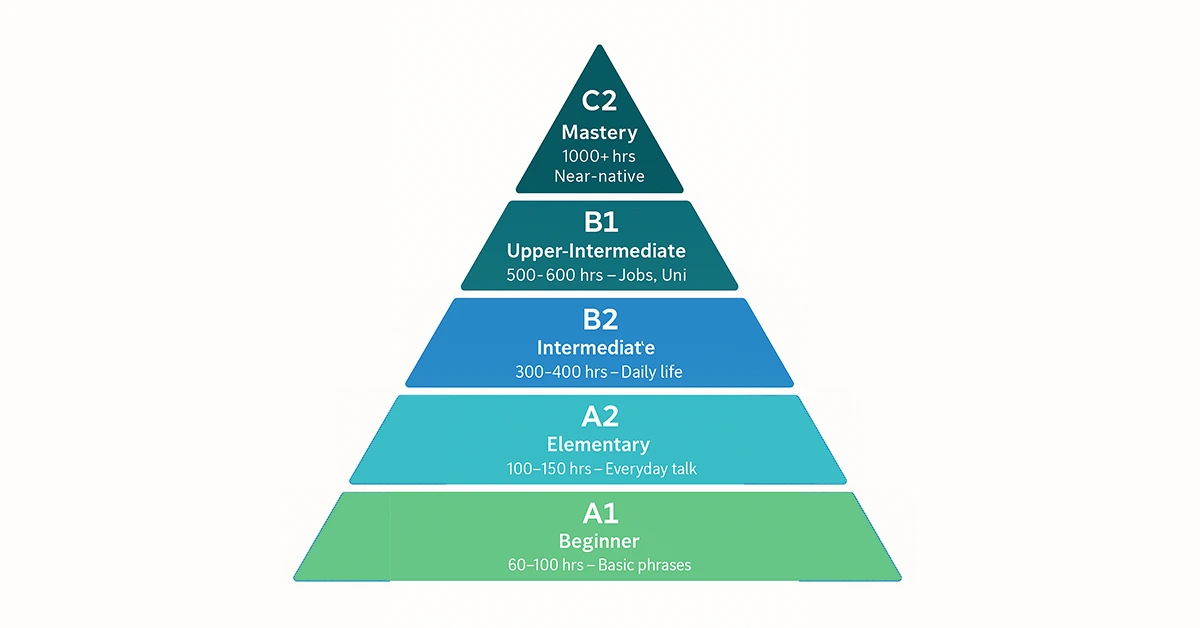German Exam Guide
-

German Language Levels A1 to C2 – Explained Clearly
Understand German Language Levels A1 to C2. Learn what each level means, how to reach it, and which exams to take. Perfect for learners and professionals.

Understand German Language Levels A1 to C2. Learn what each level means, how to reach it, and which exams to take. Perfect for learners and professionals.